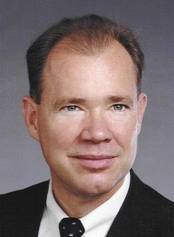Expect to hear a lot more pronouncements from state and local government officials about the need for tax increases, cuts to public services, or both.
CalPERS, the huge pension fund that serves most California government employees, has announced it is raising its rates, a move that will cost employers – taxpayers that is – up to 50% more. For some local governments already on shaky financial footing, this may be the nudge that sends them down the bankruptcy road already traveled by Vallejo, Stockton and San Bernardino.
 CalPERS is currently only 70% funded and the Board justified the increase, which amounts to billions of dollars annually, based on estimates that without increased revenue, there is an even chance that the major pension plans could fall below 50% funding in the next 30 years.
CalPERS is currently only 70% funded and the Board justified the increase, which amounts to billions of dollars annually, based on estimates that without increased revenue, there is an even chance that the major pension plans could fall below 50% funding in the next 30 years.
CalPERS admits to $87 billion in unfunded liabilities, although some experts say it is actually much higher. Additionally, Joe Nation a scholar with the Hoover Institution, a Democrat and a former member of the California Assembly, has estimated that the entire unfunded pension liability of both state and local government now approaches $500 billion.
As for the CalPERS rate increase, beyond the obvious implications for tightened government budgets, there is bad news and a little bit of good news.
The bad news is that none of this needed to happen. This crisis is no accident.
Going back to the 1990s, the CalPERS Board, Governor Gray Davis, State Treasurer Phil Angelides, and enablers in the Legislature, made a series of conscious decisions that were guaranteed to drive the giant pension fund toward insolvency. Those looking for an excellent overview of what the term “hot mess” may have been created to describe, should read Steven Malanga’s article, “The Pension Fund That Ate California” in the winter 2013 edition of City Journal.
Actions by the union controlled CalPERS Board included cynically pressing lawmakers to increase pensions to unsustainable levels using misleading information, bad investment decisions promoted by Angelides, who, as State Treasurer, had a seat on the board, and outright criminal activity by some Board members and former Board members.
Information provided to the governor and the Legislature to justify huge pension increases in 1999 was ludicrous on its face. As David Crane, an economic advisor to Arnold Schwarzenegger, has written, CalPERS estimates for investment return growth relied on the Dow Jones reaching 25,000 by 2009 – it turned out to be about 8,000 – and 28,000,000 by 2099. It was as if the return would be so great it would be hard to spend all the money rushing in, and that taxpayers – average Californians that is — would never be on the hook for a shortfall. That the governor and members of the Legislature were so anxious to accept CalPERS version of the future can only be explained by gullibility, incompetence and stupidity, or by a conceit that caused some of them to ignore the public good in return for support from the powerful government employee union forces that would guarantee their reelection, or advancement to higher office.
Oh, and the good news? Well, think of the current situation with regard to the unfunded pension liability as like being in debt to a loan shark. The more protracted the repayment the more protracted and intense the misery. So even though we Californians have been abused by corrupt Sacramento politicians and bureaucrats, the debt genie is out of the bottle, and the sooner we pay off our liability, the more likely we can look forward to more stable state and local budgets and a reduction in the pressure for new taxes.

